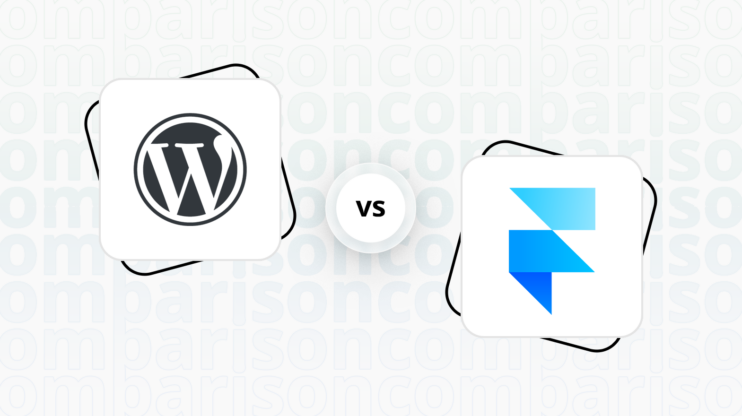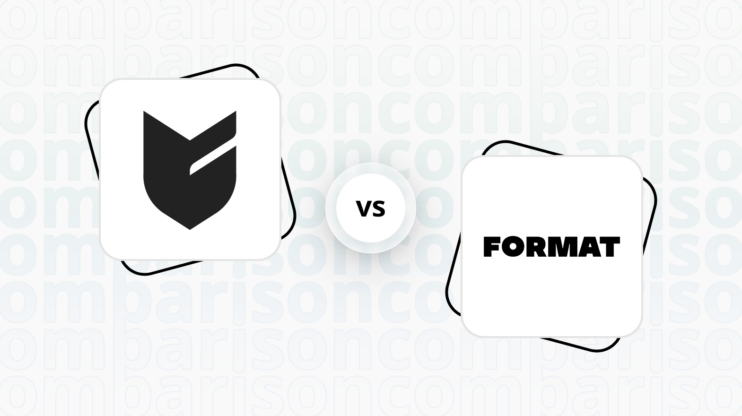Shopify vs Elementor: Final verdict
Shopify and Elementor both offer powerful platforms, but they cater to different needs and user bases.
-
Shopify (Overall Grade: 8.1/10)
is a robust ecommerce platform designed for businesses looking to create and manage online stores. It excels in providing comprehensive ecommerce features, advanced marketing tools, and strong security measures. When comparing Shopify vs Elementor, Shopify is ideal for users who prioritize a dedicated ecommerce solution with extensive support and scalability. -
Elementor (Overall Grade: 7.4/10)
is a versatile website builder plugin for WordPress, known for its flexibility and ease of use. It offers a wide range of design functionalities and templates, making it suitable for both beginners and professional web designers. Considering Shopify vs Elementor, Elementor is perfect for users who want to create highly customizable websites with a focus on design and user experience.

|

|
|
|---|---|---|
|
Design functionalities & templates |
8.2 |
9.2 |
|
Ease of use |
7.5 |
8.8 |
|
Ecommerce |
9.2 |
7.6 |
|
Website Editors |
7.9 |
8.5 |
|
Product testing options |
8.1 |
5.6 |
|
Price |
8.2 |
8.0 |
|
Hosting quality |
9.0 |
7.8 |
|
Website speed optimization |
7.8 |
6.7 |
|
Plugins and integrations |
8.7 |
7.6 |
|
Marketing features |
8.8 |
7.8 |
|
Customer support |
8.6 |
7.2 |
|
Security |
9.0 |
9.1 |
|
AI capabilities |
7.9 |
7.4 |
|
User Management |
6.5 |
8.8 |
Which one is the best for ecommerce: Shopify or Elementor?
 9.2
9.2
 7.6
7.6
Verdict
: Elementor offers flexibility and customization for WordPress users, but Shopify is the superior choice for dedicated ecommerce functionality and scalability.
-
Shopify
: Shopify is a powerhouse in the ecommerce space, scoring 9.2. It provides a comprehensive suite of tools for creating, managing, and scaling online stores. With features like Shopify Payments, advanced inventory management, and multi-channel selling, Shopify is designed for businesses aiming for growth. When comparing Shopify vs Elementor, Shopify’s extensive ecommerce capabilities make it the preferred choice for serious online retailers. -
Elementor
: Scoring 7.6, Elementor is a versatile website builder plugin for WordPress, integrating seamlessly with WooCommerce to offer ecommerce functionalities. It provides customizable product pages, a variety of ecommerce widgets, and responsive design templates. While Elementor is excellent for those who prefer WordPress and need flexibility, it may not match Shopify’s depth in ecommerce-specific features.
Which one is the best for informational and business websites?
 6.8
6.8
 8.9
8.9
Verdict
: Elementor is the superior choice for creating informational and business websites, offering greater flexibility and customization options compared to Shopify.
-
Shopify
: Shopify, primarily an ecommerce platform, can be used for informational sites but is not optimized for this purpose. Its templates are sleek and professional, but the platform’s focus on ecommerce features may be overwhelming for users looking to create simple informational websites. Shopify’s score of 6.8 reflects its limited suitability for non-ecommerce sites. -
Elementor
: Elementor excels in creating highly customizable informational and business websites. With a score of 8.9, it offers a wide range of templates and a user-friendly drag-and-drop interface, making it easy for both beginners and professionals to design visually appealing websites. Elementor’s flexibility and integration with WordPress themes and plugins make it a versatile choice for various web design needs. When comparing Shopify vs Elementor, Elementor stands out for its superior design functionalities and ease of use.
Shopify vs Elementor: Detailed comparison
Design functionalities & templates
Design FunctionalitiesRepresents how well each platform allows for creative design and customization of websites.Score Components:
- Template Variety (30%): Range and quality of design templates.
- Customization (30%): Flexibility and options for design alterations.
- User Interface (20%): Ease and intuitiveness of the design process.
- Responsiveness (10%): Adaptability to different devices and screen sizes.
- Innovation (10%): Unique design features and tools.
 8.2
8.2
 9.2
9.2
🏆
Winner: Elementor.
If you’re looking for a platform that offers more creative control, a wider range of templates and designs, and higher customization flexibility, Elementor is the preferred choice.
Shopify’s templates are sleek and professional, ideal for ecommerce sites. They offer a sophisticated look with a focus on online stores. While the free template selection is not large, Shopify’s premium theme store provides a variety of industry-specific options, offering advanced features for a strong brand presence.
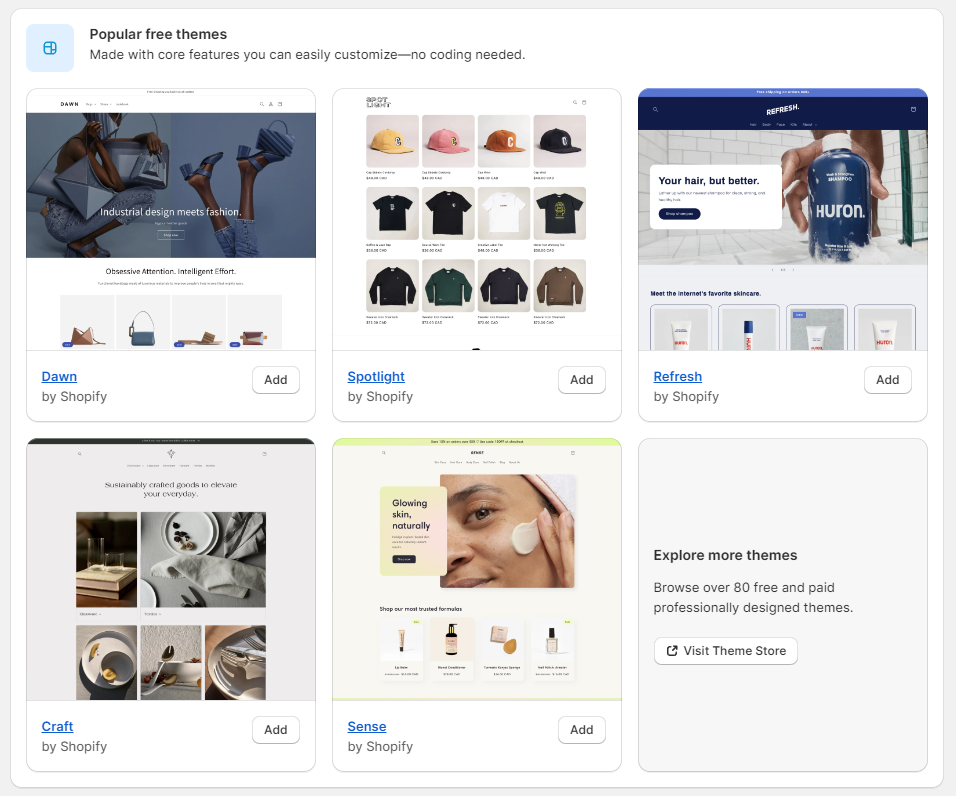
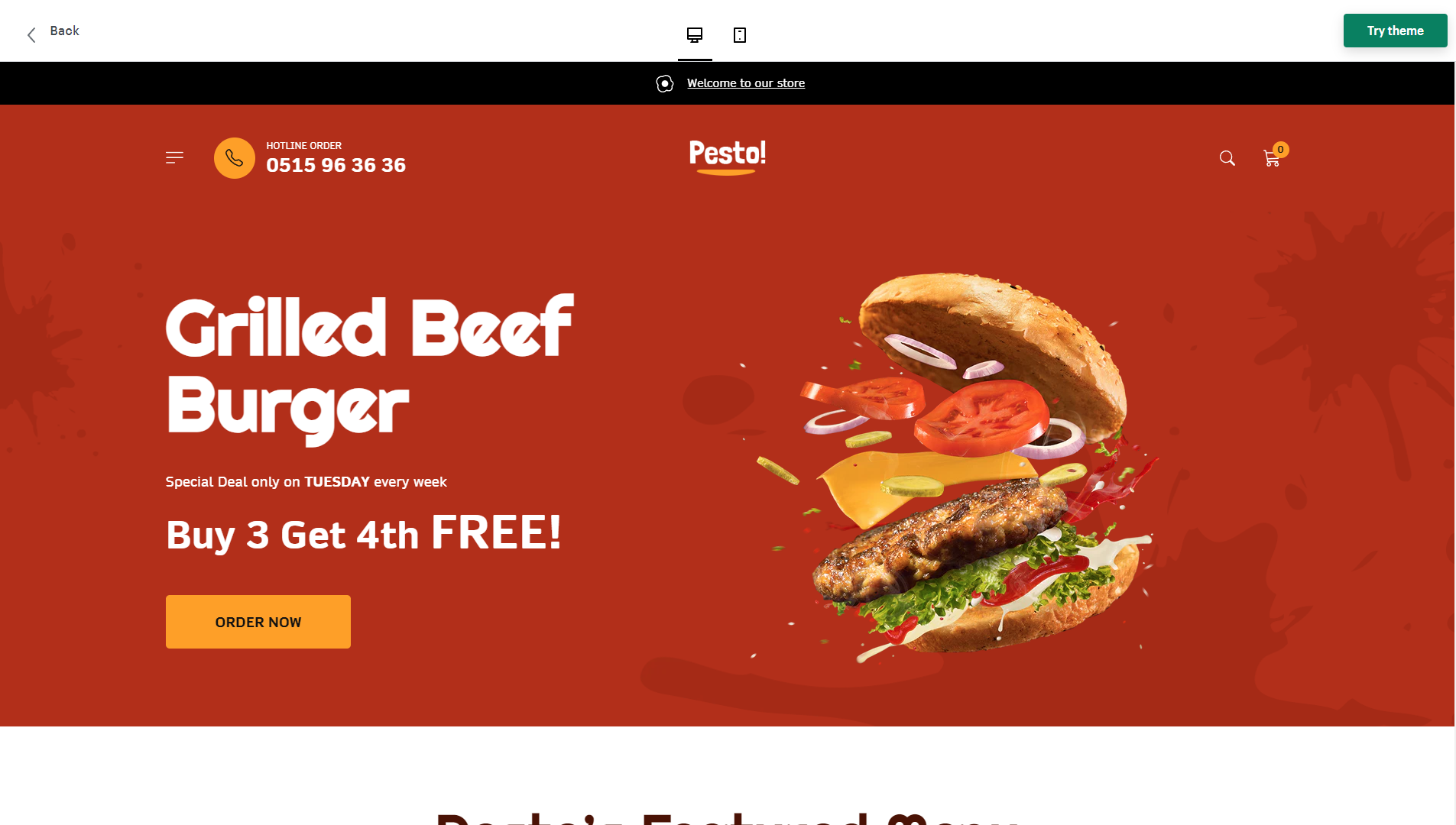
Compared to Shopify, Elementor offers an extensive range of templates and designs, with over 100 responsive website kits covering various categories like business, creative, education, and more, directly available through Elementor’s platform. Additional sources like Envato Elements, Template Monster, and others provide a wider selection, including free and premium options, catering to diverse web design needs. These templates are designed to be user-friendly, facilitating easy customization and quick website development across different sectors.
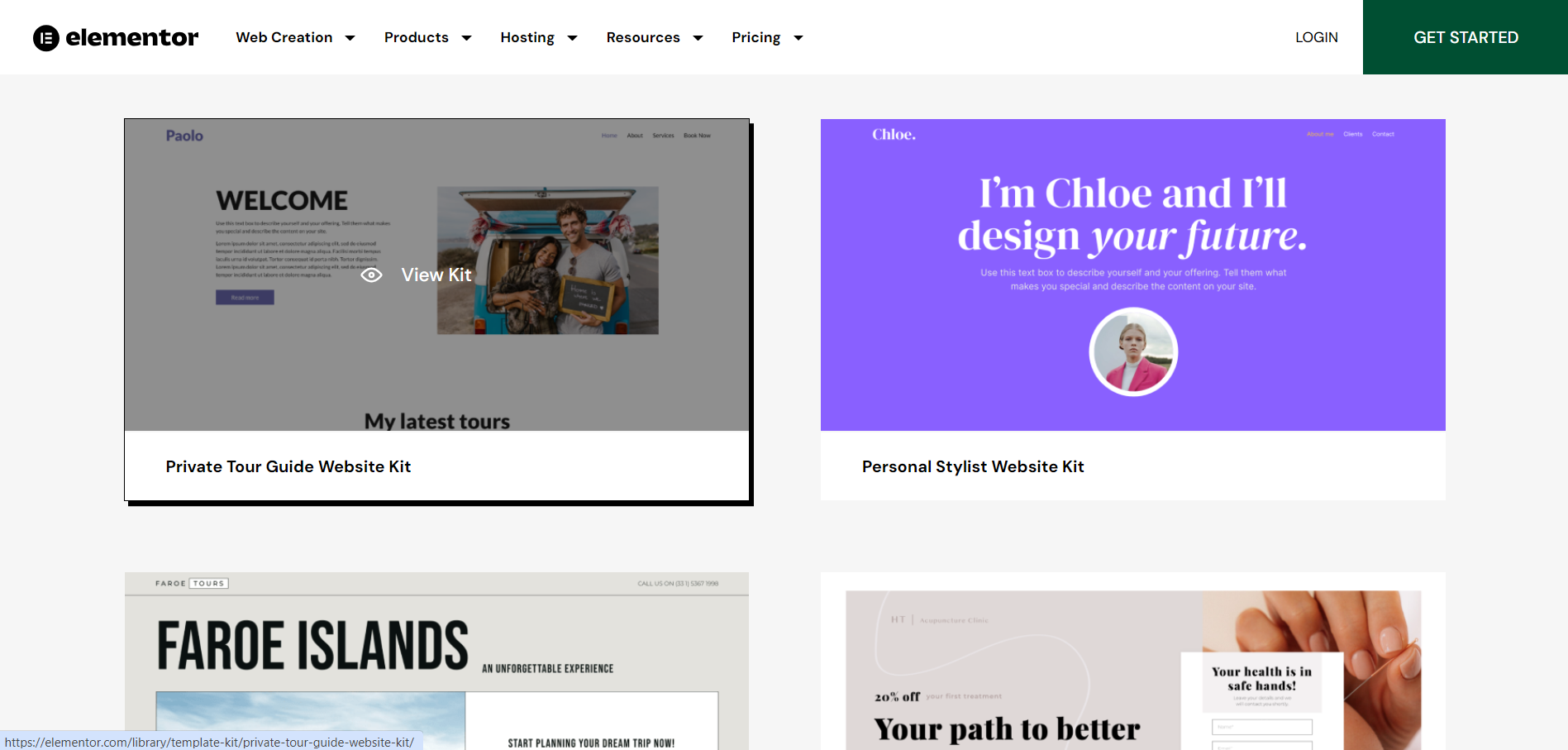
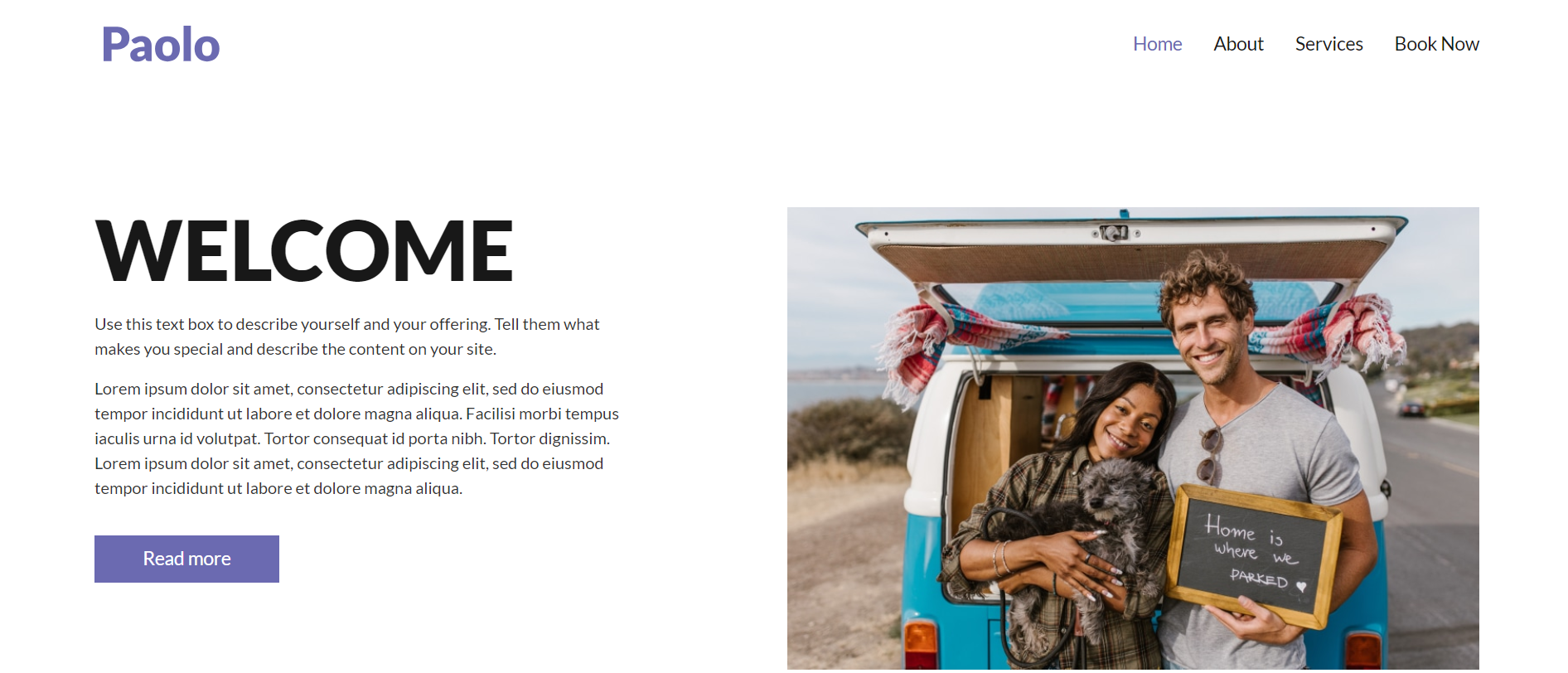
Get a head start on website creation with AI
Create a custom website tailored to your business needs 10X faster with 10Web AI Website Builder!
Ease of use
Ease of useReflects the platform’s overall user-friendliness.Score
Components:
- Learning curve (40%): Quickness and ease of getting started.
- Interface design (30%): Simplicity and intuitiveness of layout.
- User guidance (20%): Quality of tutorials and support.
- Flexibility (10%): Adaptability to various user skills.
 7.5
7.5
 8.8
8.8
🏆 Winner: Elementor
. With a score of 8.8, Elementor is known for its user-friendly interface and drag-and-drop functionality, making it easy for both beginners and professionals to create websites. Shopify, scoring 7.5, is also user-friendly but has a steeper learning curve, especially for those new to ecommerce.
Learning Resources
🏆 Winner: Elementor
. Both platforms offer extensive learning resources, but Elementor stands out with its Elementor Academy and numerous free resources such as blogs, eBooks, and YouTube channels. Shopify also provides a comprehensive library of learning resources, but Elementor’s resources are more versatile, covering a wider range of topics.
For ecommerce
EcommerceMeasures the platform’s effectiveness in supporting online business activities.Score Components:
- Ecommerce themes and templates (20%): Variety and design of templates.
- Product management (25%): Ease of managing and organizing products.
- Payment options (25%): Variety and convenience of payment methods.
- Ecommerce features (20%): Features for managing an ecommerce store.
- Integration (10%): Compatibility with external e-commerce tools and services.
 9.2
9.2
 7.6
7.6
Shopify, with a score of 9.2, is a leading ecommerce platform that provides a comprehensive set of features for online businesses. It offers tools for creating and customizing online stores, managing products, processing payments, and handling order fulfillment. On the other hand, Elementor, scoring 7.6, offers robust ecommerce capabilities through its seamless integration with WooCommerce, providing customizable product pages, a variety of ecommerce-specific widgets, and responsive design templates for building online stores.

|

|
|
|---|---|---|
|
Ecommerce themes and templates |
8.2 |
7.8 |
|
Product page customization |
8.5 |
8.4 |
|
Payment processing and commissions |
8.8 |
7.5 |
|
POS capabilities |
8.1 |
5.5 |
|
Payment gateways |
9.5 |
7.0 |
|
Product numbers |
9.0 |
7.0 |
|
Additional ecommerce features |
9.1 |
8.0 |
Shopify ecommerce features:
- Comprehensive store builder
- Shopify Payments and other gateways
- Advanced inventory management
- Multi-channel selling
- Abandoned cart recovery
- Detailed analytics and reporting
Elementor ecommerce features:
- WooCommerce Integration
- Customizable Product Pages
- Ecommerce Widgets
- Product Categories and Filters
- Shopping Cart Customization
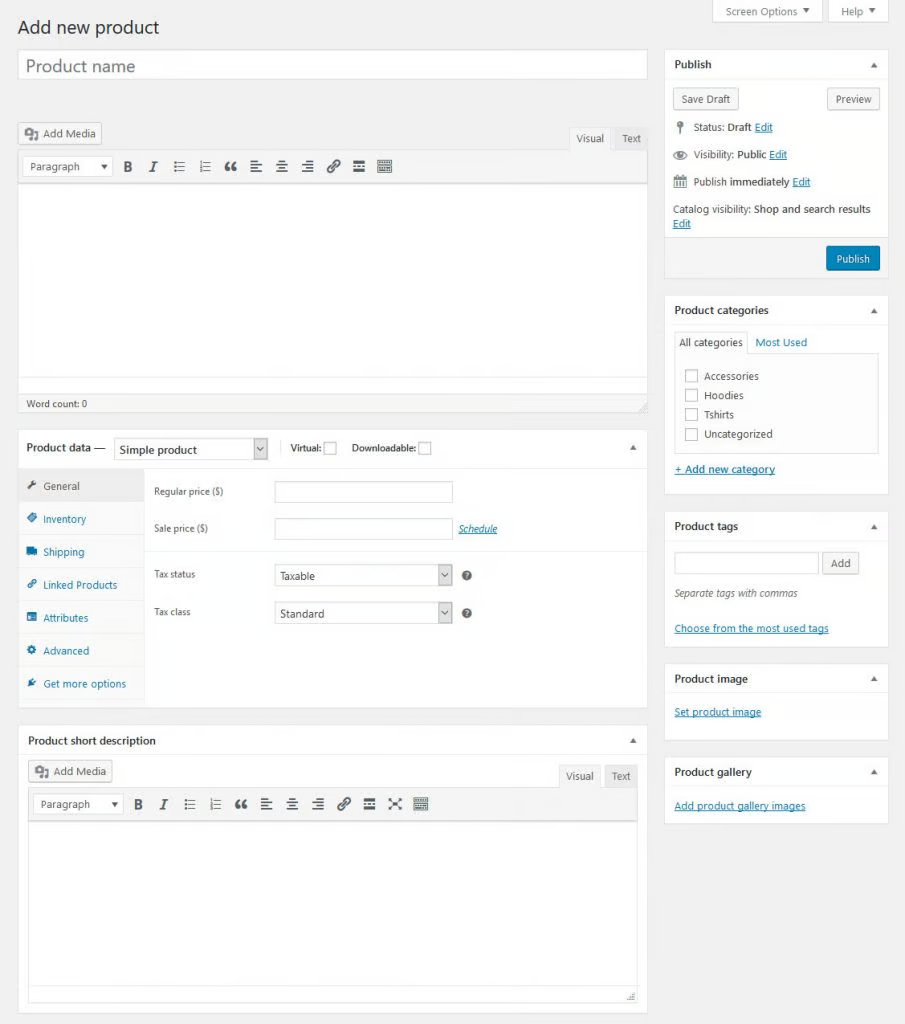
Ecommerce themes & templates
Shopify offers about 150 modern responsive themes for creating a virtual storefront, ensuring a good look on both desktop and mobile devices. While some themes are free, others cost between $170 to $380. In contrast, Elementor offers a diverse range of ecommerce-specific templates suitable for various online stores, from free options for budget-conscious users to premium templates with advanced customization features. These templates are designed to be mobile-responsive and SEO-friendly, ensuring optimal performance across devices and search engines.
Product page customization
Shopify has a limit of three options per product, totaling 100 unique variations. This limit may not pose a significant constraint, and it is suggested that for products with numerous options, creating separate listings on Shopify can be a more manageable approach. While Shopify offers titles, descriptions, and image galleries with zoom effects, customization options like adding ribbons, size charts, and wishlists are not as straightforward. However, Shopify distinguishes itself with additional features through its extensive library of extra apps, offering functionalities like reviews, Facebook stores, eBay item importers, and a unique Augmented Reality feature for an enhanced customer experience.
Elementor offers extensive customization options for WooCommerce product pages, including custom layouts, WooCommerce widgets for various product elements, and options for styling product galleries and ‘Add to Cart’ buttons. It allows for the display and customization of product variants, although the number of variants is technically limited by WooCommerce, not Elementor. Custom CSS and mobile responsiveness ensure that product pages look good on all devices, enhancing the shopping experience.
Payment processing
When it comes to payment processing, Shopify offers payments with typical charges of
2.9% + 30¢
per online transaction on basic plans, and lower fees for higher-tier plans. However, it adds extra fees for using other payment gateways. Shopify Payments is Shopify’s own payment processing gateway. It allows merchants to accept credit card payments directly on their store without having to integrate third-party payment providers. This simplifies the payment process, reduces transaction fees, and streamlines the handling of finances.
Elementor supports several payment gateways, notably through plugins and integrations, with Stripe and PayPal being prominent options for simple and widespread use. These gateways charge their own transaction fees, typically around
2.9% + $0.30
per transaction, but Elementor itself does not impose additional fees for transactions. While direct POS capabilities are not a primary feature of Elementor integrations, some supported payment gateways offer their own POS solutions for physical transactions.
Website Editors
Website EditorsEvaluates the platforms’ website building and editing capabilities.Score Components:
- Customization tools (40%): Range and power of editing features.
- Editor usability (30%): User experience within the editor.
- Design flexibility (20%): Freedom in layout and design changes.
- Update and maintenance ease (10%): Simplicity of updating and maintaining the site.
 7.9
7.9
 8.5
8.5
🏆
Winner: Elementor
. Elementor, with a score of 8.5, offers an intuitive drag-and-drop interface that allows users to create and customize their WordPress sites without needing to code. It provides a wide array of widgets and templates, enabling users to design complex elements such as sliders, forms, and animated headlines. Elementor also ensures websites look great on all devices with its responsive design options.
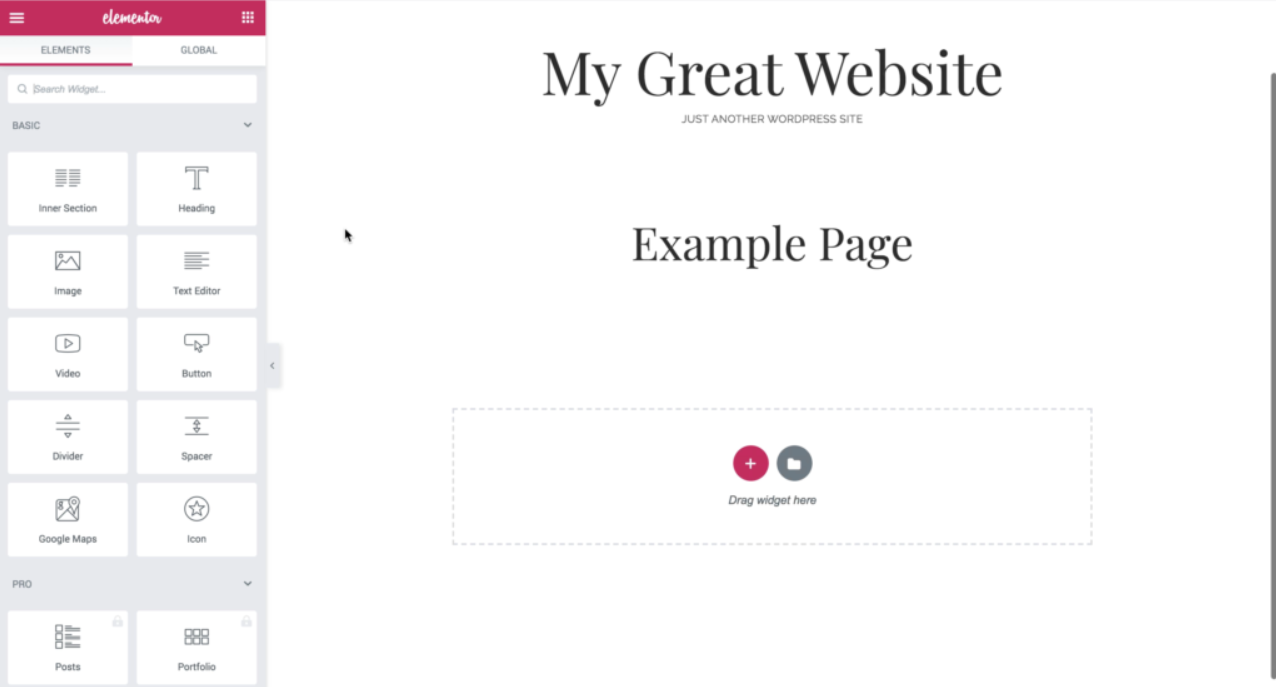
Shopify’s editor, scoring 7.9, excels in providing a streamlined, ecommerce-focused editing experience. It’s particularly beneficial for users who prioritize efficient management of online stores. The editor is straightforward, making it easy to add products, manage inventory, and set up payment methods. Shopify’s editor is optimized for sales and business growth, with built-in tools specifically designed for ecommerce businesses.
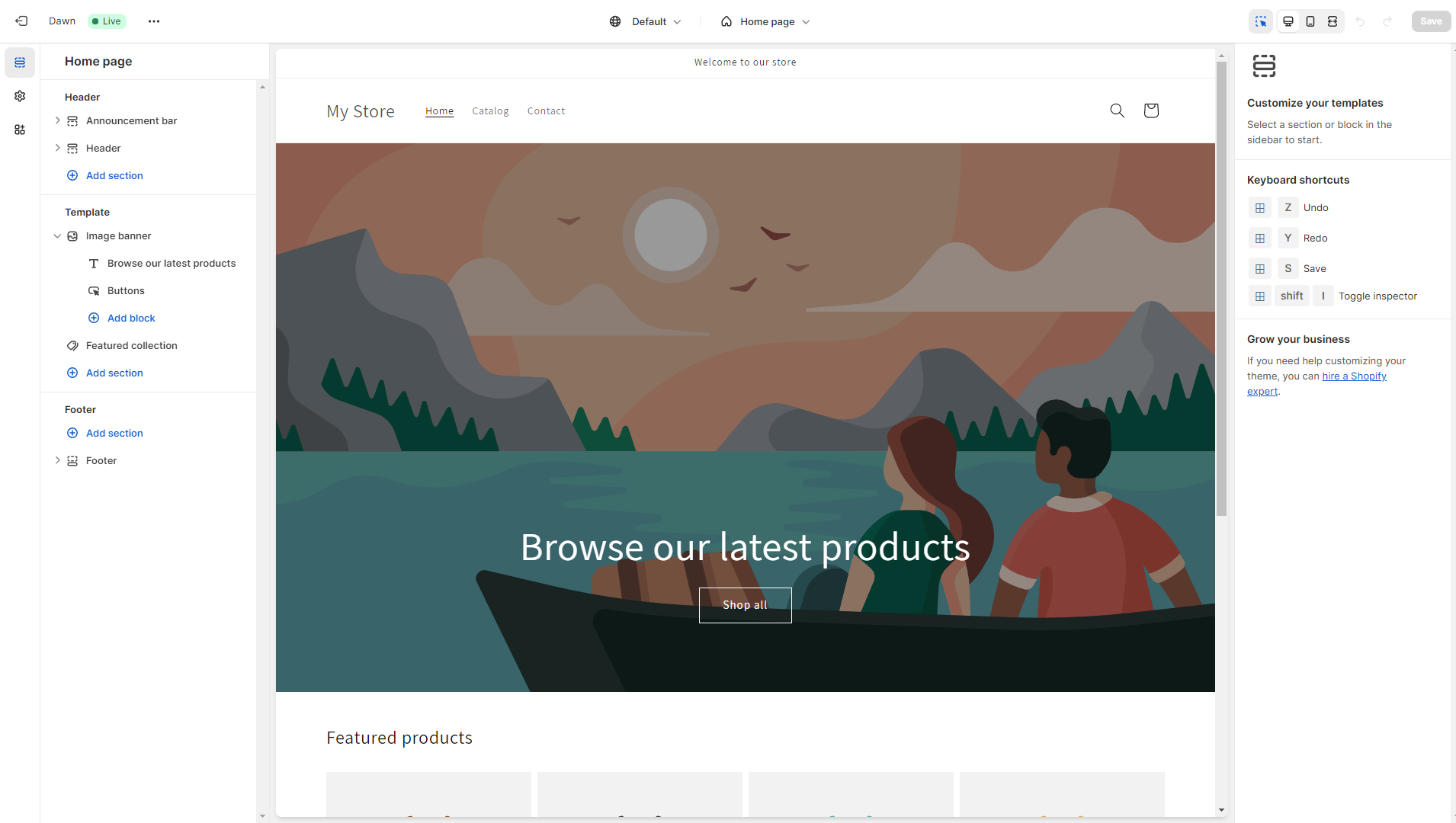
Mobile editor/app
 8.0
8.0
 0
0
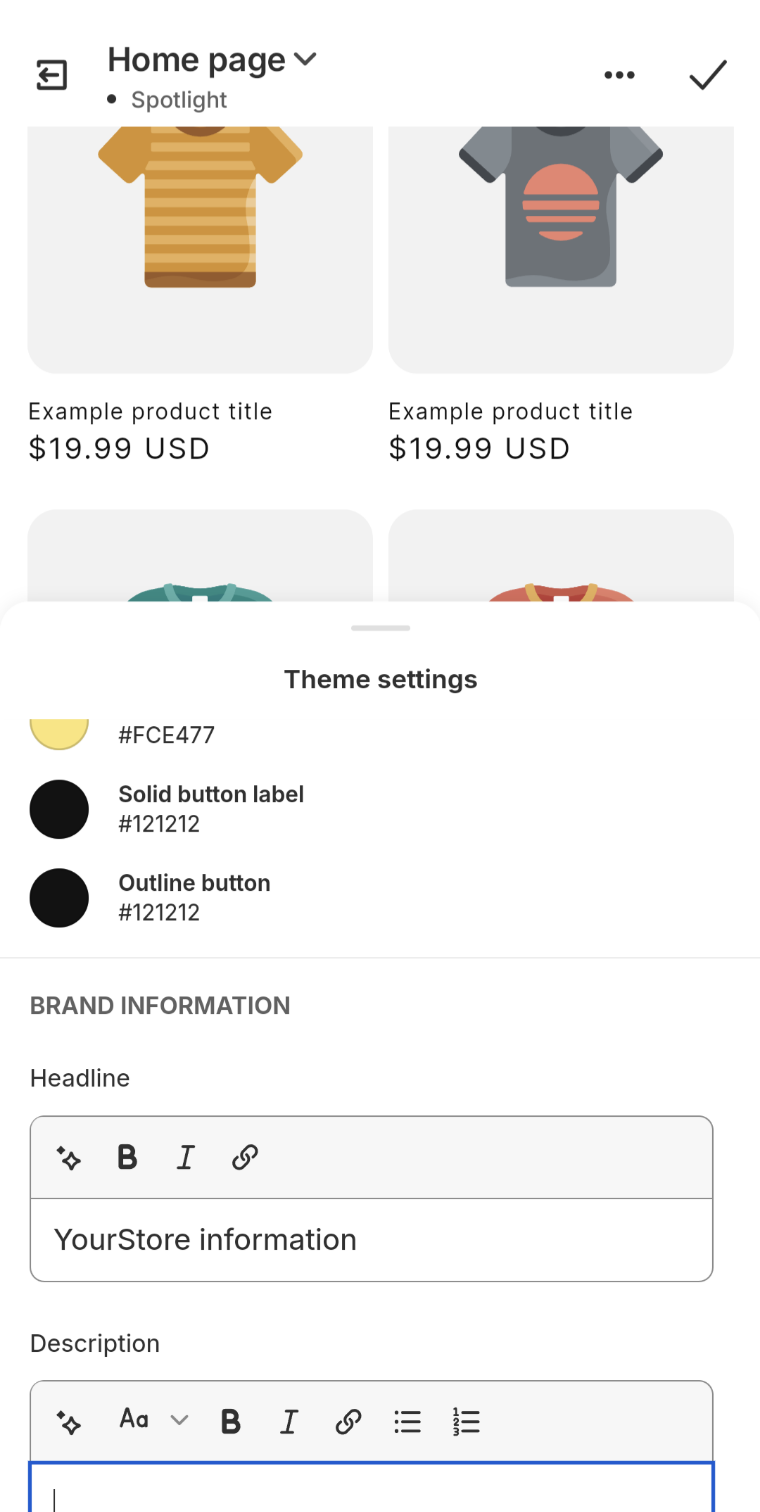
🏆
Winner: Shopify
. Shopify offers a mobile app that includes a user-friendly mobile theme editor. This feature allows users to customize their online store website directly from their mobile device. Users can add, remove, edit, and rearrange content on the store’s website, offering convenient on-the-go adjustments to the store’s appearance and layout.
On the other hand, Elementor does not have a dedicated mobile editor. This means that users cannot make changes to their website from a mobile device, which can be a significant disadvantage for those who need to make quick changes on the go. Therefore, in terms of mobile editing capabilities, Shopify is the clear winner.
Product testing options
Product Testing OptionsAssesses the options for trying out platform features before commitment.Score Components:
- Trial quality (40%): Extent and usefulness of the trial or free version.
- Feature accessibility (30%): How many features are available to test.
- Trial duration (20%): Length of the trial period.
- Ease of transition (10%): Smoothness of moving from trial to paid plans.
 8.1
8.1
 5.6
5.6
Overall Result
:
Shopify Wins
. Shopify scores 8.1 in product testing options, while Elementor scores 5.6. Shopify offers a 14-day free trial with access to all features, while Elementor offers a free version for self-hosted WordPress.org and a 30-day money-back guarantee.

|

|
|
|---|---|---|
|
Free Plan |
No (14-day free trial) | Yes, but only for self-hosted WordPress.org |
|
Trial Duration |
14 days | No trial version available |
|
Testing Premium Features |
All features during free trial |
Possible during refundable period |
|
Money Back Guarantee |
14-day free trial | 30-day money back guarantee |
Price
PriceLooks at the cost-effectiveness and value for money of each platform.Score Components:
- Plan value (40%): What each pricing tier offers.
- Transparency and clarity (30%): Clearness of pricing structures.
- Flexibility of plans (20%): Range of options to suit different budgets.
- Hidden costs (10%): Additional expenses not included in the plan.
 8.2
8.2
 8.0
8.0
Shopify and Elementor have different pricing structures, with Shopify offering more value for money according to our price score.
Shopify is more suited for ecommerce businesses, while Elementor is a flexible website builder for WordPress.

|

|
|
|---|---|---|
|
$0-$10 |
No offering at this amount. |
Basic ($9.99/month): 1 website, with 10GB SSD storage, 25k monthly visitors, 30GB monthly bandwidth, daily auto backups stored for 14 days, Cloudflare CDN, and integrated caching tool Value for price: 6.5 |
|
$10-$20 |
No offering at this amount. |
Business ($19.99/month): 1 website, with 20GB SSD storage, 50k monthly visitors, 50GB monthly bandwidth, daily auto backups stored for 30 days, Cloudflare CDN, integrated caching tool and access to staging environment Value for price: 7.5 |
|
$20-$30 |
Shopify Basic ($29/month): Unlimited products, 2.9% + 30¢ card fee with Shopify payments, Extra 2% gateway fee without Shopify Payments, Abandoned cart recovery, Automated sales tax, Digital products, POS Integration, 2 staff accounts. Value for price: 8.0 |
Grow ($22.99/month): 3 websites, with 30GB SSD storage, 75k monthly visitors, 75GB monthly bandwidth, daily auto backups stored for 30 days, Cloudflare CDN, integrated caching tool, access to staging environment and site cloning Value for price: 8.5 |
|
$40-$80 |
Shopify Standard ($79/month): Lower card fees (2.6% + 30¢), Gift cards, Professional reports, 5 staff accounts. Value for price: 8.5 |
Scale ($49.99/month): 10 websites, with 40GB SSD storage, 100k monthly visitors, 100GB monthly bandwidth, daily auto backups stored for 30 days, Cloudflare CDN, integrated caching tool, access to staging environment and site cloning Value for price: 9.0 |
|
$200+ |
Advanced Shopify ($299/month): Lowest card fees (2.49% + 30¢), Advanced report builder, Real-time carrier shipping, Up to 15 staff accounts Value for price: 8.8 |
No offering at this amount. |
location. As a result in rare cases the prices displayed here can differ from the ones you see on their
websites.
Hosting quality
Hosting
qualityExamines the reliability and performance of the hosting solutions.Score Components:
- Uptime (40%): Consistency and reliability of website availability.
- Speed (30%): Loading times and performance.
- Bandwidth and storage (20%): Sufficiency of resources provided.
- Data centers (10%): Quality and distribution of hosting infrastructure.
 9.0
9.0
 7.8
7.8
Winner: Shopify
Shopify offers proprietary cloud-based hosting with a 99.99% uptime guarantee and data centers in 5 global locations. Elementor, on the other hand, provides managed WordPress hosting with a 99.9% uptime guarantee and only one data center in Belgium. Shopify’s superior uptime and global presence give it an edge in hosting quality.

|

|
|
|---|---|---|
|
Do they offer hosting? |
Yes, included in all paid plans |
Yes, included in all paid plans |
|
Data Centers: |
5 globally: USA (Ashburn, Virginia; Santa Clara, California), Canada (Toronto, Ontario), Ireland (Dublin), and Singapore |
1 data center in Belgium |
|
Type of hosting: |
Proprietary cloud-based hosting |
Managed WordPress Hosting |
|
Uptime: |
99.99% |
99.9% |
|
Uptime Guarantee: |
Yes, 99.99% |
Yes, 99.9% |
Website Speed Optimization
Website Speed OptimizationEvaluates optimization of website loading timesScore Components:
- PageSpeed Score (30%): Google’s score indicating performance optimization.
- Loading Time (30%): The average time until a website is fully interactive.
- Mobile Optimization (15%): Optimization effectiveness for mobile devices.
- Resource Optimization (15%): Optimizing images, scripts, and other heavy resources.
- CDN Usage (10%): Use of CDN to enhance speed across geolocations.
 7.8
7.8
 6.7
6.7
🏆 Winner: Shopify
Both Shopify and Elementor prioritize website performance and page speed, but Shopify has a slight edge in terms of website speed optimization.

|

|
|
|---|---|---|
|
Focus |
App optimization, Google AMP |
Lazy Loading, Code Minification, Caching, CDN |
|
Performance Tools |
Google Lighthouse, PageSpeed Insights |
Google PageSpeed Insights Integration |
|
Key Strategies |
App efficiency, Theme optimization |
Lazy Loading, Code Minification, Caching, CDN |
|
Load Times |
Varies widely, dependent on optimization |
Varies depending on optimization and website complexity |
|
Page Speed Scores Range |
Scores vary; influenced by apps, images |
Varies depending on optimization and website complexity |
|
Core Web Vitals Improvement |
Emphasis on LCP, FID, CLS improvements |
No information disclosed |
Shopify places a strong emphasis on website performance and page speed. Its approach to enhancing site speed includes app optimization by removing unneeded app code, conditionally loading apps, avoiding immediate pop-up displays, and incorporating app functionality directly into themes. This approach leverages Shopify’s fast servers and CDN network to boost load speed. Shopify also suggests utilizing Google AMP for faster mobile page loads, although with some design compromises. Analysis of three Shopify sites showed a range of Shopify speed scores from 14 to 75, Google PSI scores from 8 to 80, and load times varying from 10.6 seconds to 2.3 seconds. Continuous maintenance and optimization are essential for keeping Shopify stores fast.
Elementor, on the other hand, uses strategies like lazy loading, code minification, caching, and CDN to optimize website speed. However, it does not disclose any information about its Core Web vitals improvements. The load times and PageSpeed score ranges for Elementor vary depending on optimization and website complexity.
Get a head start on website creation with AI
Create a custom website tailored to your business needs 10X faster with 10Web AI Website Builder!
Plugins and integrations
Plugins and integrationsMeasures the range and effectiveness of additional plugins and integrations.Score Components:
- Variety of options (40%): Range of available add-ons.
- Integration smoothness (30%): Ease of integrating plugins into the site.
- Quality of plugins (20%): Functionality and reliability of the options.
- Custom integration capabilities (10%): Support for custom or third-party integrations.
 8.7
8.7
 7.6
7.6
🏆 Winner: Shopify.
With a score of 8.7, Shopify leads the way with its extensive range of ecommerce-focused plugins and seamless integrations. It offers over 8,000 apps in its App Store, covering a wide range of functionalities. These apps come with various pricing options, including free, paid, freemium, and one-time payment models. Key Shopify integrations feature Oberlo for dropshipping, Klaviyo for email marketing, Yotpo for reviews, Printful for print-on-demand, Shopify POS for sales, Google Analytics for insights, Facebook Channel for social selling, ShipStation for shipping, QuickBooks for accounting, Privy for conversions, Smile.io for loyalty, SEO Manager, AfterShip for tracking, Spocket for products, and Gorgias for customer service, enhancing various ecommerce aspects.
Elementor, scoring 7.6, offers a wide range of add-ons that extend the functionality beyond the base version, offering advanced widgets, modules, and complete theme building capabilities for deep customization. They enable superior integration with WooCommerce, third-party services, and provide advanced marketing tools to enhance conversions and user engagement. Additionally, add-ons can improve website performance and accessibility, ensuring a better user experience and compliance with web standards. These extensions transform a basic Elementor site into a highly customized, efficient, and integrated web presence. Key integrations include email marketing platforms like MailChimp, AWeber, and ActiveCampaign, WordPress plugins such as WooCommerce and Yoast for SEO, and social networks like Facebook SDK and YouTube.
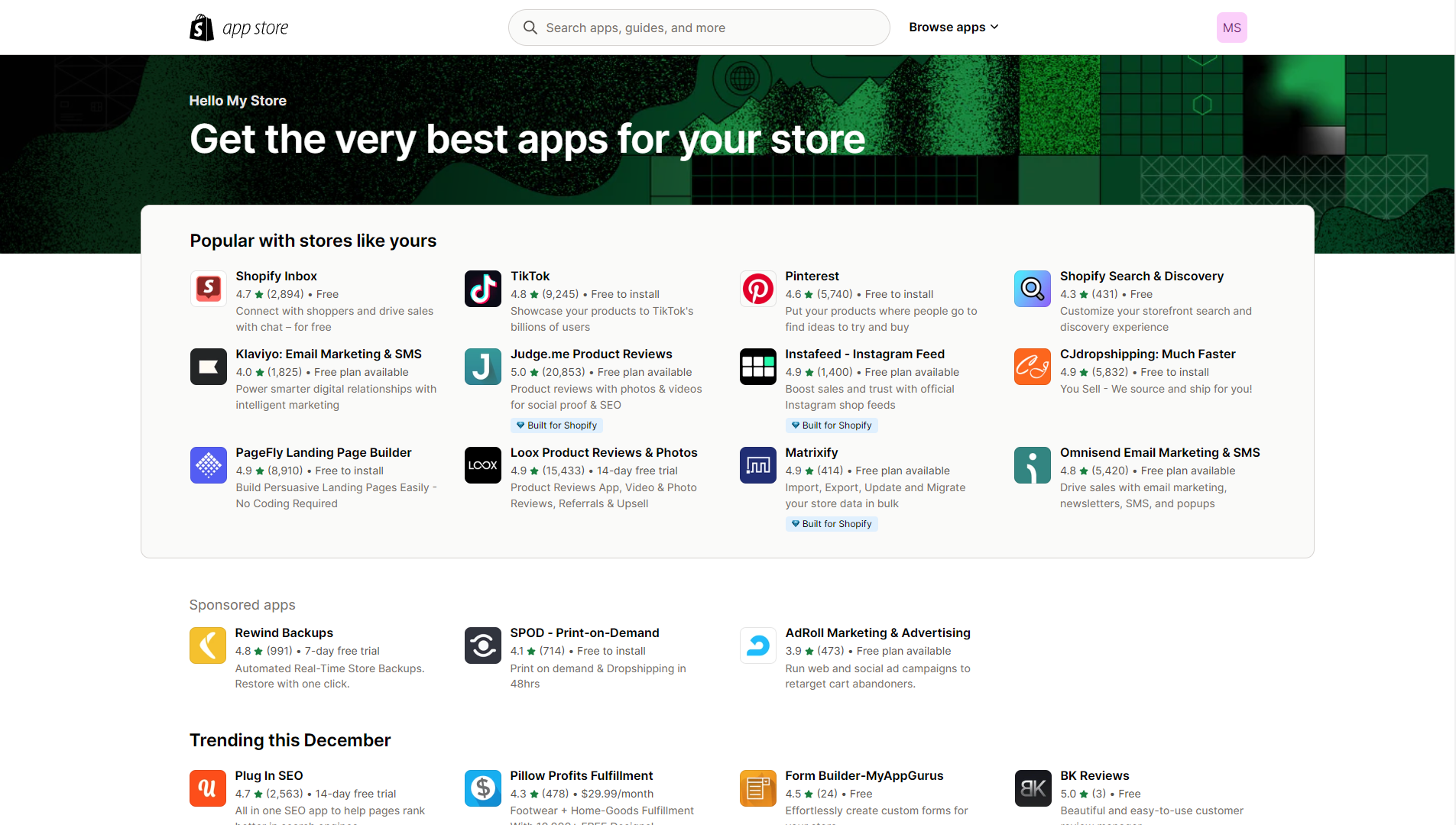
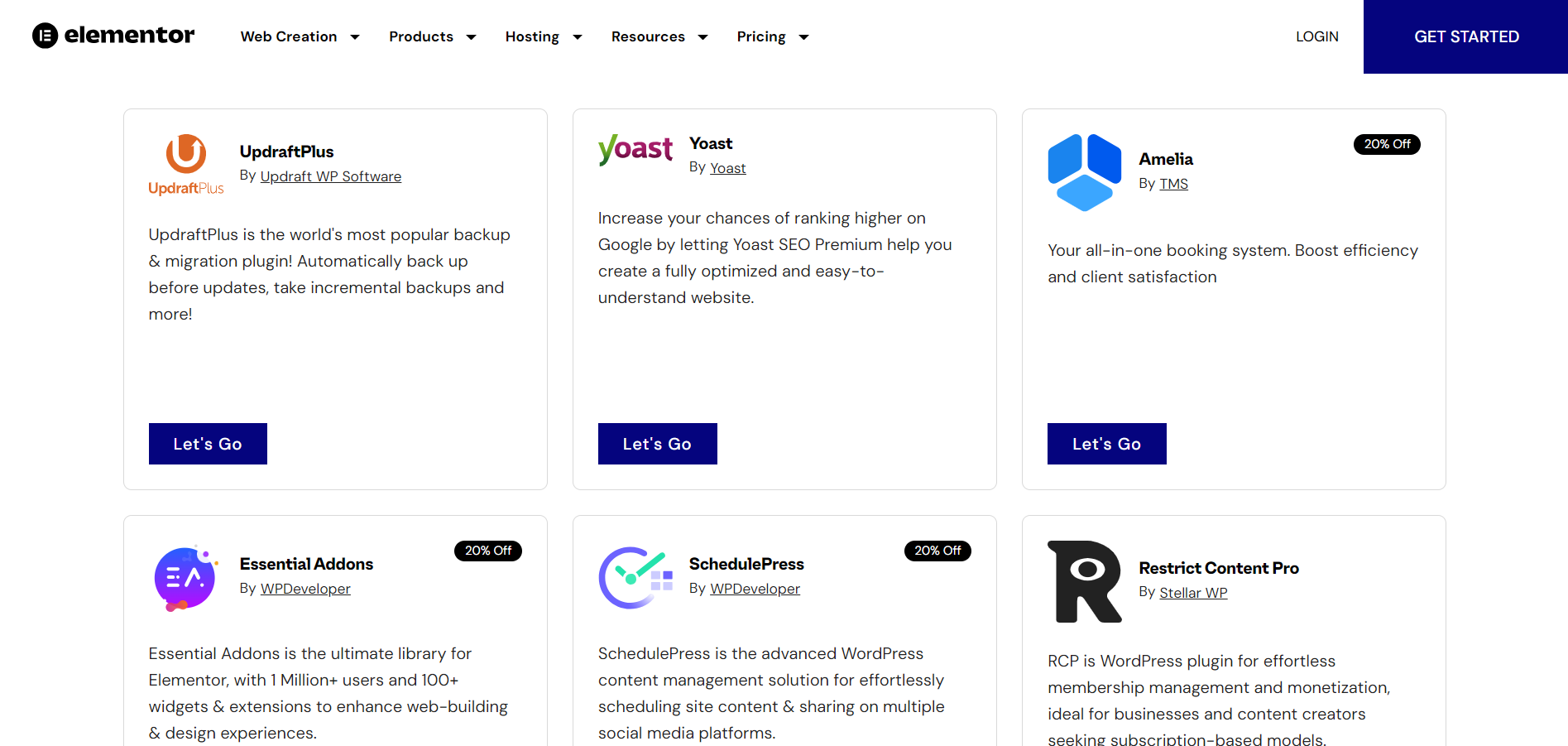
Marketing Features
Design FunctionalitiesRepresents how well each platform allows for creative design and customization of websites.Score Components:
- Template Variety (30%): Range and quality of design templates.
- Customization (30%): Flexibility and options for design alterations.
- User Interface (20%): Ease and intuitiveness of the design process.
- Responsiveness (10%): Adaptability to different devices and screen sizes.
- Innovation (10%): Unique design features and tools.
 8.8
8.8
 7.8
7.8
🏆
Overall Winner: Shopify
. Shopify stands out for its more advanced ecommerce-focused marketing tools, especially in analytics and ad campaign management. Elementor is strong in email marketing and blogging, ideal for content-driven strategies.

|

|
|
|---|---|---|
|
SEO Tools |
|
(with integration of various SEO plugins) |
|
Email Marketing |
|
(with integration of various email marketing services and plugins) |
|
Blogging |
|
|
|
Social Media Integration |
Advanced integration for selling directly on social platforms |
Integration of social media buttons |
|
Analytics and Reporting |
Detailed analytics for in-depth insights |
Yes, with integration of Google Analytics |
|
Ads and Promotions |
Google Ads integration; sophisticated ad campaign management |
Yes |
Customer Support
Customer supportEvaluates the quality and availability of support options.Score Components:
- Response time (40%): Speed of support responses.
- Support quality (30%): Effectiveness and helpfulness of the support.
- Availability (20%): Range of support channels (phone, chat, email).
- Resource richness (10%): Quality of self-help and educational materials.
 8.6
8.6
 7.2
7.2
🏆 Winner: Shopify
. Comparing Shopify vs Elementor, Shopify takes the lead in this category with a customer support score of 8.6. Shopify offers 24/7 support through chat, email, and phone, ensuring that users can get help whenever they need it. The platform also provides extensive tutorials, a vibrant community forum, and a valuable marketing blog, making it easier for users to find solutions and grow their businesses. For enterprise-level businesses, Shopify offers dedicated account managers, priority support, and additional resources through its Shopify Plus program.
Elementor, on the other hand, has a customer support score of 7.2. While Elementor provides 24/7 support via ticketing and live chat, it lacks the comprehensive enterprise-level support that Shopify offers. However, Elementor’s global customer experience agents ensure that users can get assistance at any time, and the platform’s flexibility and integration with WordPress themes and plugins make it a strong choice for those looking to customize their websites extensively.
Security
SecurityLooks at the platforms’ security measures and data protection.Score Components:
- Data protection (40%): Safeguards for user and customer data.
- SSL and encryption (30%): Implementation of secure connections.
- Compliance (20%): Adherence to industry security standards.
- Regular updates (10%): Frequency of security updates and patches.
 9.0
9.0
 9.1
9.1
🏆
Winner: Elementor
. Elementor edges out Shopify with a slightly higher security score. Elementor’s security measures are robust, leveraging Google Cloud’s infrastructure for high security, including end-to-end encryption. They also have a proactive Bug Bounty program and an ISO 27001 certification, which further emphasizes their commitment to security.
Shopify also prioritizes security, with measures such as secure infrastructure, encryption, and limited access. They comply with data privacy regulations and ensure user control and transparency. However, their security score is slightly lower than Elementor’s, making Elementor the winner in this category.
AI Capabilities
AI capabilitiesMeasures the effectiveness of AI-driven features and tools.Score Components:
- Automation efficiency (40%): Impact of AI on streamlining processes.
- Personalization (30%): AI-driven customization for users or customers.
- AI-Assisted design (20%): Role of AI in website design and functionality.
- Data analysis (10%): Use of AI in interpreting user data and analytics.
 7.9
7.9
 7.4
7.4

|

|
|
|---|---|---|
|
AI Builder |
Shopify AI Builder offers functionalities like Theme Section Builder, Content Generation, SEO Optimization, and Email Marketing Tools |
Elementor’s AI builder enables the generation of text, custom codes, and images directly within the Elementor editor |
|
AI Ecommerce Features |
AI-driven eCommerce with personalized recommendations, dynamic search, and automated marketing |
AI-driven features for eCommerce websites, including the ability to generate container layouts, custom images, text, and code directly within the editor |
|
AI Content Generation |
Content Assistant for brainstorming ideas and generating outlines for product descriptions, blog posts, social media captions, and more |
AI content generation capabilities enhance website creation on WordPress by offering text and code generation, including HTML and CSS customization, as well as AI-based image solutions |
|
Additional AI Features |
Demand Forecasting, Automated Replenishment, Smart Fraud Detection, Chargeback Management, AI-powered Chatbots, Sentiment Analysis, Route Optimization, Warehousing Optimization |
Integration of many third-party AI powered WordPress plugins or widgets into Elementor |
🏆 Winner: Shopify
. Shopify, with a score of 7.9, utilizes AI mainly to enhance the ecommerce experience. Its AI features focus on customer behavior analysis, personalized shopping experiences, inventory management, and sales predictions. While Shopify’s AI is powerful, it is more business and data-centric compared to Elementor’s design-focused AI.
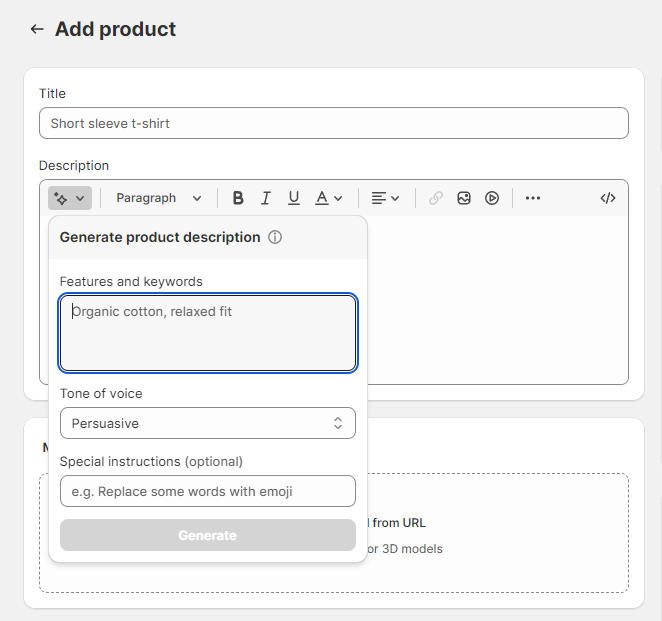
Elementor, with a score of 7.4, has introduced an AI builder, a cutting-edge feature integrated into its platform from version 3.13, designed to transform the website creation process. This AI builder enables the generation of text, custom codes, and images directly within the Elementor editor, facilitating a more efficient and creative workflow.
User Management
User ManagementAssesses the platforms’ capabilities in managing user roles, permissions, and accessibility.Score Components:
- Role Customization (40%): Flexibility in creating and defining user roles and
permissions. - Ease of Management (30%): User interface and tools for managing users.
- Access Control (20%): Effectiveness of access control measures for different user
levels. - Scalability (10%): Ability to manage a growing number of users efficiently.
 6.5
6.5
 8.8
8.8
🏆 Winner: Elementor
. Managing your online team with Shopify and Elementor involves different approaches to website editing access.
-
Shopify enforces staff account limits based on plans, ranging from 2 to 15, with Shopify Plus offering unlimited
accounts. Collaborators with limited access are also an option. - The number of users who can edit or manage a website built with Elementor depends on the roles and permissions set within WordPress, as Elementor operates on WordPress. Administrators have full access to edit any part of the site, including Elementor settings, while Editors can manage posts and pages made with Elementor. Authors and Contributors have limited capabilities, with the former being able to manage their own posts. Elementor Pro offers a Role Manager feature, enabling further customization of what different roles can do within Elementor, but there’s no fixed limit on the number of users—it’s determined by the roles assigned by the site administrator.
Shopify User Roles and Access Levels:
| Role | Description | Access Highlights |
|---|---|---|
| Store Owner | Full control over store | Manage products, orders, discounts, payments, apps, settings. Create and manage staff accounts. |
| Staff | Configurable access by owner |
Add/edit products, manage orders, fulfill orders, manage customers, update content. Access level can be customized by the owner. |
| Collaborator | Limited access for external partners | View and manage specific sections like blog or product categories. Cannot access full store settings. |
Elementor User Roles and Access Levels:
| Role | Description | Access Highlights |
|---|---|---|
| Administrator | Users with full access to all administration features, including Elementor settings. | Can edit all content, Access to Elementor settings, Can install plugins and themes, Can manage users |
| Editor | Users who can manage and publish content including pages and posts. | Can edit pages/posts created with Elementor, Cannot access Elementor settings, Can manage categories, tags, and links, Can moderate comments |
| Author | Users who can publish and manage their own posts. | Can create posts with Elementor, Cannot edit pages, Limited access to media library, Cannot access Elementor settings |
| Contributor | Users who can write and manage their own posts but cannot publish them. | Can create content with Elementor, Cannot publish or edit pages, No access to Elementor settings, Submissions require review by higher-level roles |
Additional Features

|

|
|
|---|---|---|
|
SSL Certificate |
|
|
|
Custom Domain |
|
|
|
Free Custom Domain Included |
|
|
|
International Domains |
|
|
|
Mobile Responsive |
|
|
|
Page Speed |
|
|
|
Website Builder Mobile App |
|
|
|
Convert a Website To An App |
|
|
|
Website Analytics |
|
|
|
Multilingual Sites |
|
|
|
Multiple Users |
|
|
Shopify vs Elementor: User Feedback
Shopify’s slightly higher rating on G2 Crowd can be largely attributed to its specialization in ecommerce. Its comprehensive features, ease of use, and robust customer support cater specifically to online businesses, leading to high user satisfaction among those seeking a dedicated ecommerce solution.
Elementor is widely appreciated for its intuitive drag-and-drop interface, enabling rapid creation of professional and responsive websites without coding skills. It offers a vast range of templates and compatibility with WordPress, making it a go-to for diverse users. Despite its benefits, concerns arise regarding website loading times, subscription costs, and occasional compatibility issues. Feedback on customer support and legacy plan management is mixed, with some users experiencing dissatisfaction. Overall, Elementor is valued for its efficiency in web development, although some aspects, particularly support services, could be improved.
The making of this blog
We followed a clear, step-by-step process to write and research this article.
Shopify vs Elementor: FAQ
What are the main differences between Shopify and Elementor?
Can I use Elementor for ecommerce websites?
Which platform is better for beginners?
How do Shopify and Elementor handle hosting and security?
Can I switch from Shopify to Elementor or vice versa?
Which platform offers better customer support?
Are there any significant pricing differences?










